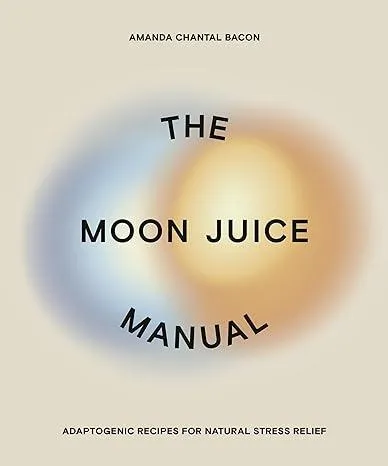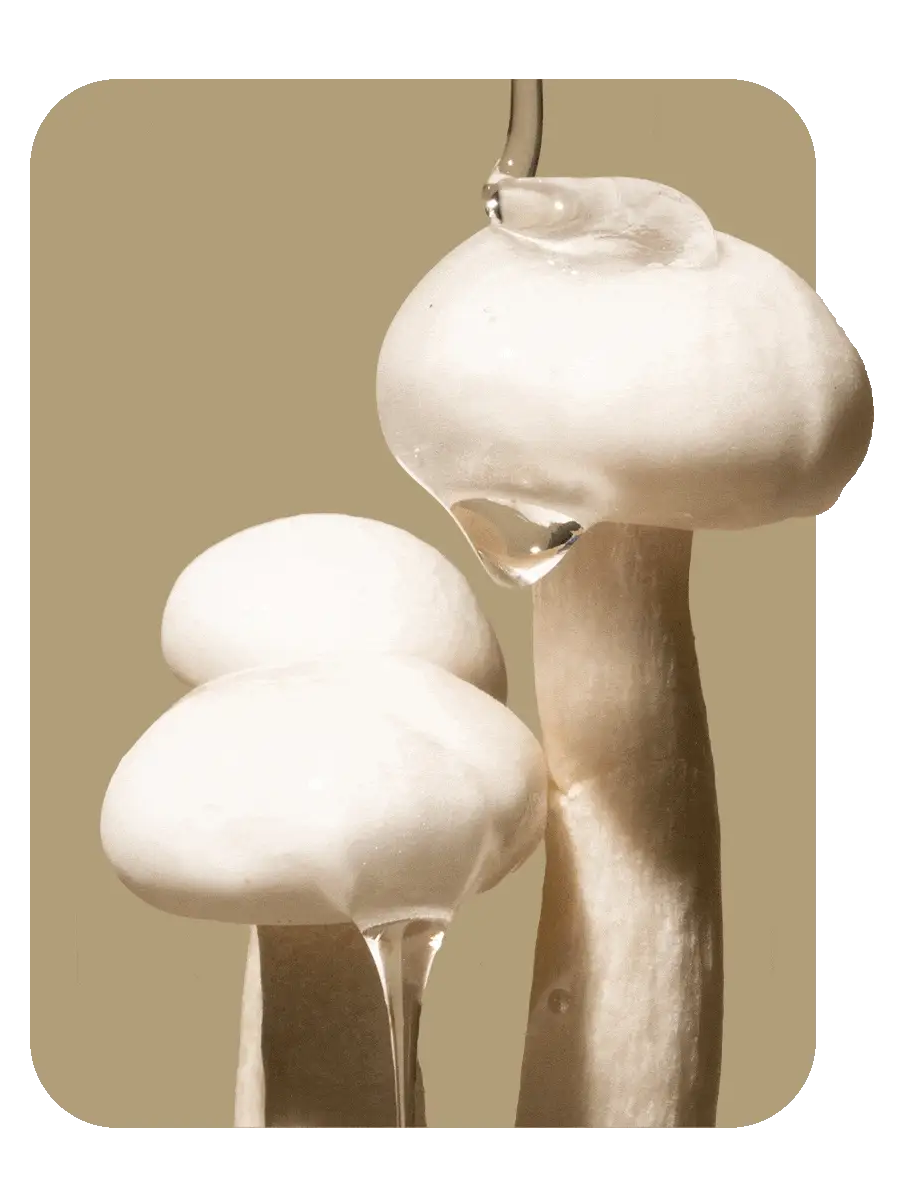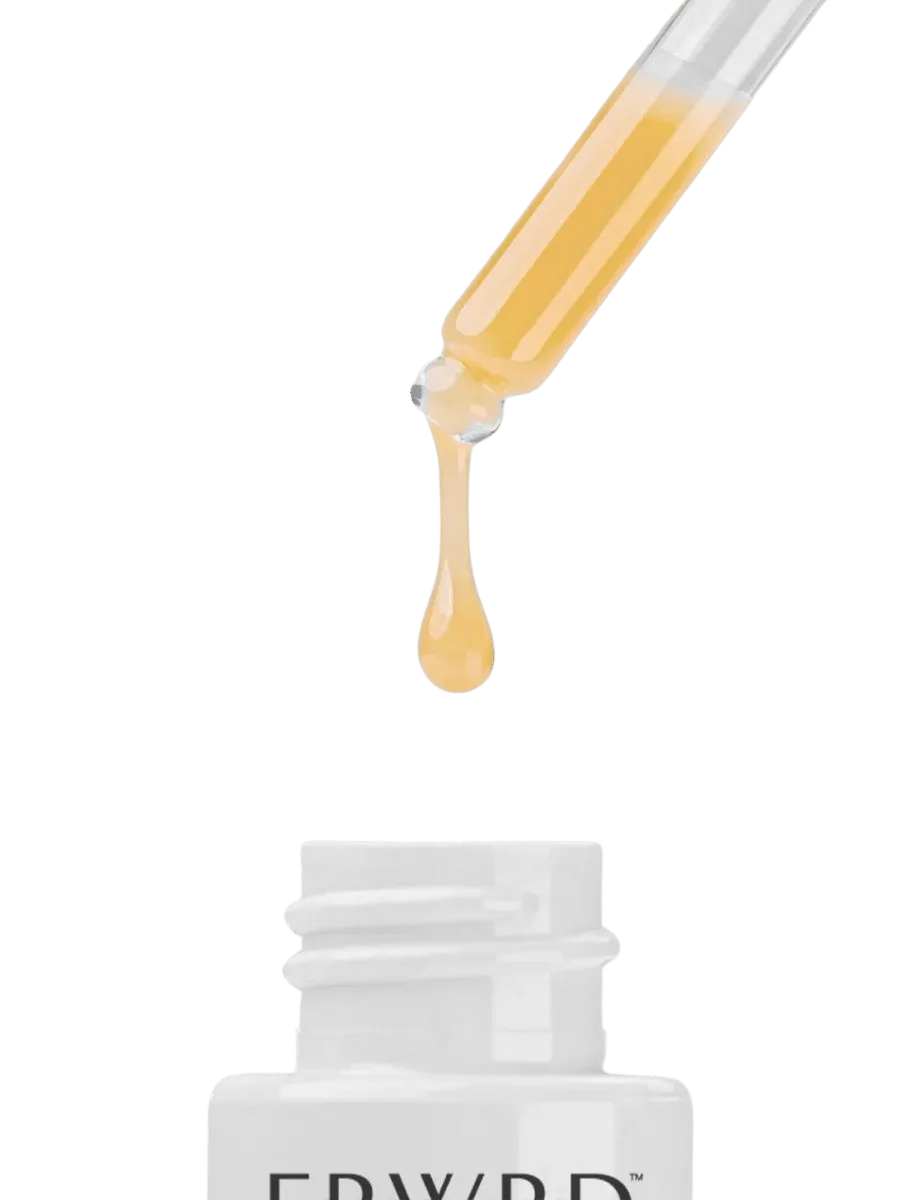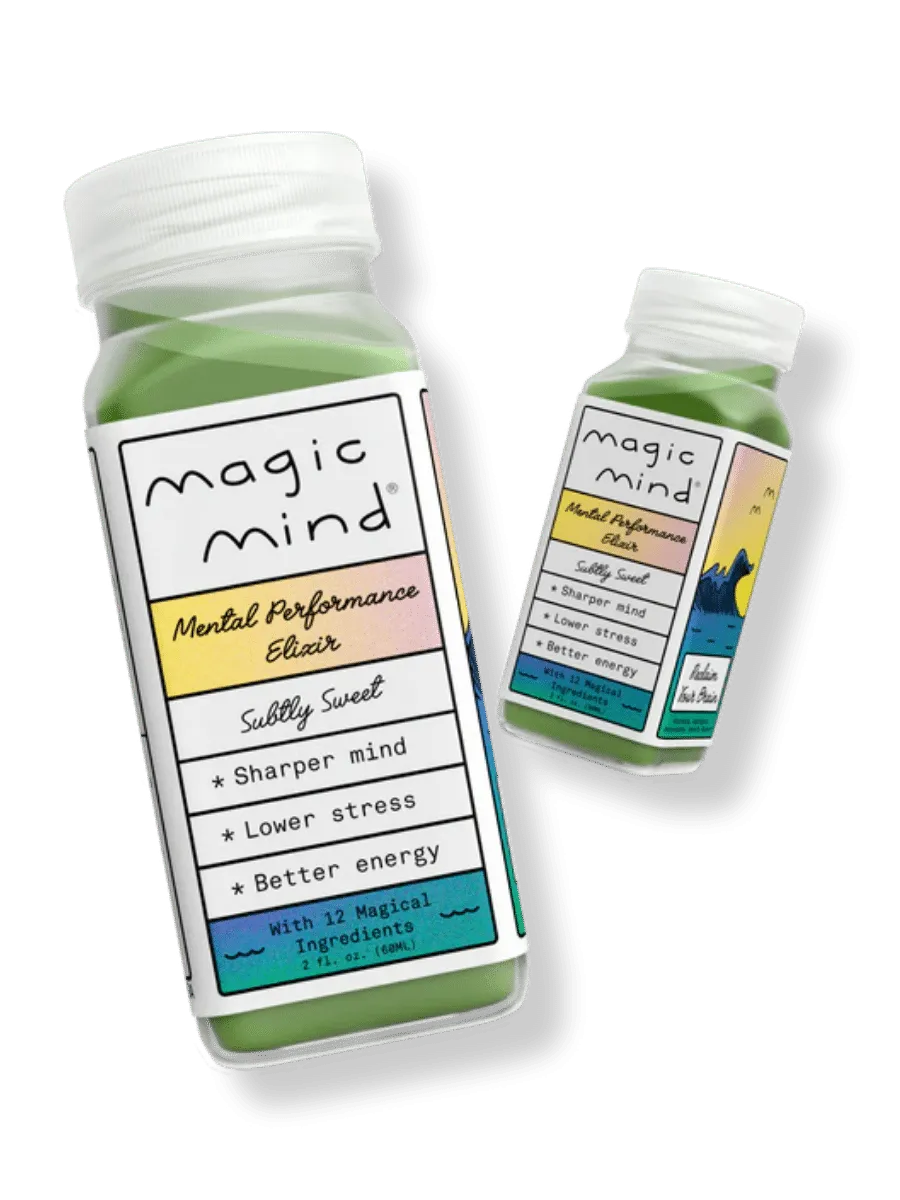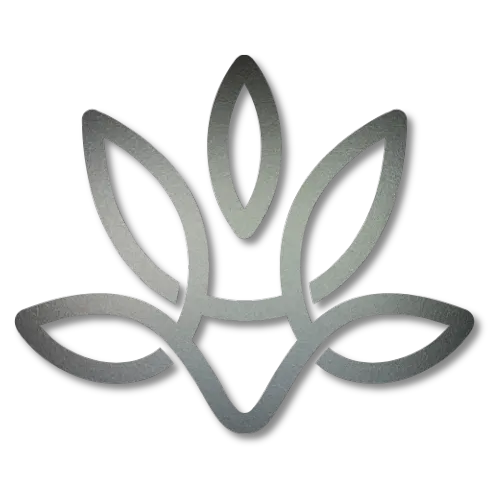adaptogens
Adaptogens are
stress-busting herbs, plants and mushrooms that help your body respond to Stress, Anxiety,
Fatigue and overall Wellbeing.
Be
non-toxic
to
the
body
Reduce and regulate stress by helping the body adapt to it
Restore normal physiological function (homeostasis) to the body
Bring your body back to a steady balance
These stress-busting herbs and mushrooms can help the body find balance in the face of daily stress and supports.

Adaptogens bring your body back to a steady balance by managing both physical and mental stressors
Managing both physical and mental stressors
Sleep Deeper
Reduce Stress, Anxiety and Cortisol
Experience Newfound Energy
Stronger Immune System
Stronger Libido
Better Balanced Hormones
Weight Management
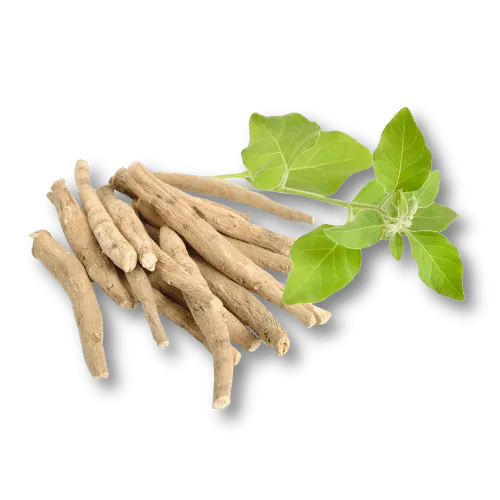
ashwagandha
- A true natural superfood, packed with adaptogenic properties to lower inflammation, reduce anxiety, and support deeper, more restful sleep so that you can look and feel like you’re thriving again.
This evergreen shrub grows in India, the Middle East, and regions of Africa. Early research suggests it may also help against aging, anxiety, and other conditions.
Ashwagandha travels into your cells, so you can feel the effects throughout your whole body.
Main potential benefits of ashwagandha:
Reduces stress and anxiety
Boosts energy levels and reduces fatigue
Supports brain function, memory and improves focus
Improves sleep quality
Boosting testosterone and fertility in men
Regulating blood sugar levels
Providing anti-inflammatory and immunomodulatory effects
ginseng
- Boost your body’s defenses (immune system).
Two types: American ginseng (Panax quinquefolius) and Asian (Panax ginseng) with slightly varying properties -- are considered adaptogens.
Main benefits of ginseng:
Enhances energy levels and reduces fatigue
Natural energy booster
Believed to help the body better utilize oxygen
Improves brain function and cognitive performance
Shown to enhance memory, concentration, and cognitive processing
Strengthens the immune system through inflammation support
Improving blood sugar regulation
Potentially having anti-aging effects
Ability to restore balance and promote overall vitality
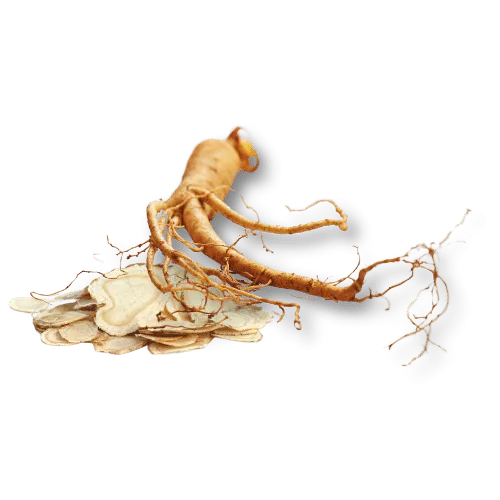
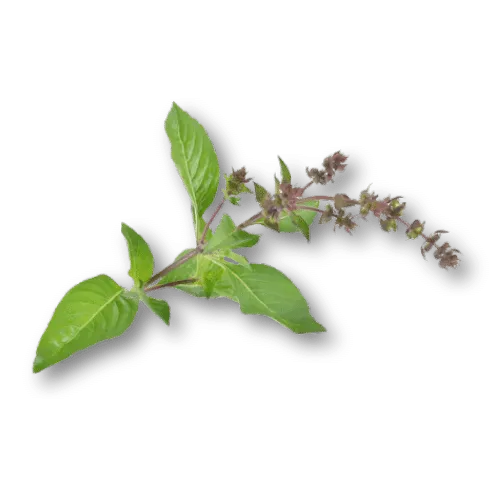
tulsi (holy basil)
- sometimes called "the queen of herbs"
In traditional medicine, it's used for everything from coughs and colds to scorpion bites.
This fragrant plant comes from India and grows in other areas of Asia.
Not only can holy basil support our ability to handle stress, but it may also have a positive effect on mood and cognitive function.
Also referred to as an “Elixir of Life” in the Ayurveda system, there’s a reason it’s been used for more than 3,000 years.
Main benefits of Tulsi:
Reduces stress and anxiety
Promote a sense of calmness
Regulate cortisol levels and have an anxiolytic (anti-anxiety) effect
Boosts immunity and has antimicrobial properties
Tulsi is rich in antioxidants
May help protect against infections and diseases
Supports respiratory health
Beneficial for respiratory conditions such as bronchitis, asthma, and coughs
Helps clear mucus from the respiratory tract and promote easier breathing
Tulsi is considered a powerful "rasayana" herb, meaning it is believed to promote longevity and overall well-being
rhodiola rosea
- It significantly reduces fatigue and stress in people suffering from 'burnout' which can (consequently) improve cognitive function.
This high-altitude shrub grows in arctic and mountainous parts of North America, Europe, and Asia. Some studies suggest it may also have anti-aging and cancer-fighting effects, but more research is needed.
Rhodiola rosea is a herb with traditional usage as an anti-fatigue agent and adaptogen compound.
Main benefits of rhodiola:
Reduces stress and fatigue
Regulates cortisol levels
Boosts brain function and improves mood
Enhance cognitive performance, including memory, concentration, and mental clarity
Help alleviate symptoms of mild depression and anxiety
Increases energy and endurance
May also speed up recovery after intense physical activity
Supporting immune function
Regulates blood sugar levels
Promoting healthy heart function
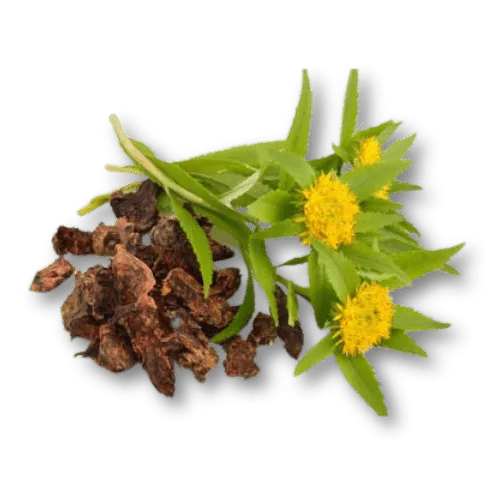
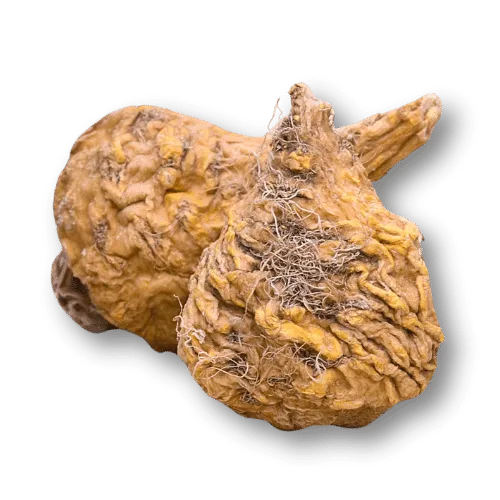
maca
- Passion & Power
Increase your energy, balance your hormones and upgrade your mood with the power of maca!
Maca (Lepidium meyenii) is an adaptogenic root vegetable that grows in the mountains of Peru.
Main benefits of maca:
Boosts energy, stamina, and athletic performance
May help the body better utilize nutrients and adapt to stressors
Supports reproductive health and sexual function
Traditionally been used to promote fertility and enhance libido in both men and women
May help regulate hormones, improve sperm quality, and alleviate symptoms of menopause
Alleviates symptoms of stress and anxiety
Improving bone health
Supporting brain function
Potentially having anti-aging effects
Maca is rich in nutrients like proteins, vitamins, and minerals
turmeric
- A relative of the ginger family, used as both a spice and a supplement. A powerful anti-inflammatory adaptogen.
Traditionally used for disorders of the skin, upper respiratory tract, joints, and digestive system.
Today, turmeric is promoted as a dietary supplement for a variety of conditions, including arthritis, digestive disorders, respiratory infections, allergies, liver disease, depression, and many others.
Main benefits of rhodiola:
Reduces Inflammation
Fights Free-Radical Damages
Improves Immune System
Helps Ease Joint Pain
Help Treats and Prevent Cancer
Guards Your Heart
Treats Your Gut
Enhances Mood
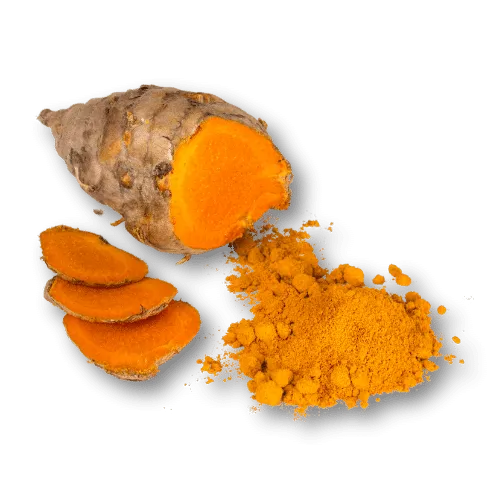
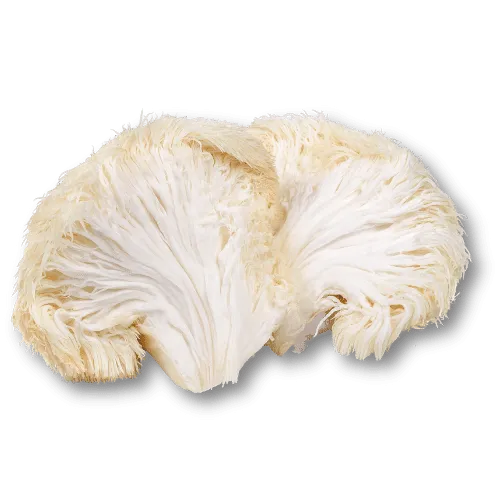
lion's mane mushrooms
- a cognitive enhancer linked to sharpening focus, increasing productivity, and elevating your immunity
Simply from the nutritional compounds found in lion’s mane mushrooms, the vitamins and minerals each mushroom possesses make it act as more than a superfood, but an actual function supporter. Like other medicinal mushrooms, you can find lion’s mane mushrooms in the wild, but they’re far rarer than in the past few decades, as the market and demand for using medicinal mushrooms like lion’s mane have risen exponentially.
Main benefits of lion's mane:
Nootropic (brain-boosting) properties
Enhances cognitive function and neural health
Can stimulate the growth and repair of nerve cells
Potentially improving memory, focus, and overall brain function
Reduces inflammation and oxidative stress
Help protect cells from damage caused by inflammation and oxidative stress
Contribute to its neuroprotective effects and potential benefits for conditions like Alzheimer's and Parkinson's disease
Supports immune system function
Reducing anxiety and depression
Supporting cardiovascular health
Potentially having anti-diabetic effects
Natural supplement for promoting brain health, cognitive performance, and overall well-being, particularly as people age
reishi mushrooms
- Revered for its ability to promote longevity, vitality, and overall well-being.
Reishi (Ganoderma lucidum) is an adaptogenic mushroom that has been used in traditional Chinese medicine for centuries.
Reishi is considered a "superior" herb. Its unique combination of adaptogenic, immune-modulating, and antioxidant properties make it a valuable addition to a healthy lifestyle.
Main benefits of reishi:
Enhances immune function
Reduces inflammation and has antioxidant properties
May help protect cells from oxidative stress
Promotes calmness and improves sleep quality
May have a calming effect on the mind and nervous system
Potentially improving sleep quality
Reducing fatigue
Potentially having anti-tumor properties
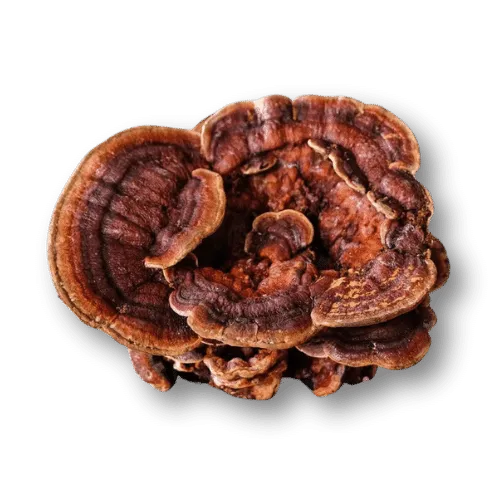
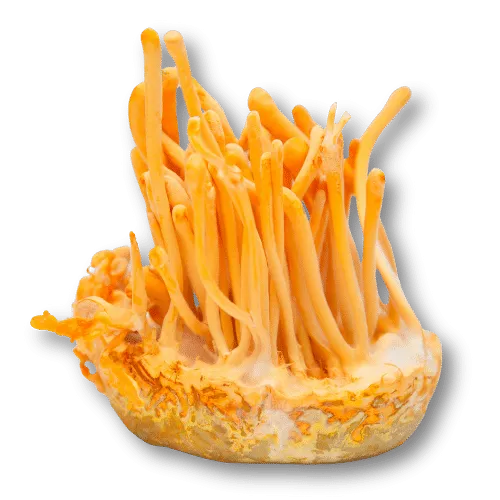
cordyceps mushroom
- Known as the 'the athlete's mushroom' as it may boost the body's supply of ATP,* a primary source of energy to improve stamina and endurance to potentially support physical performance.
Also referred to as an aphrodisiac, it may enhance oxygen uptake and is said to enhance libido and fertility.
*ATP stands for adenosine triphosphate, and it is the primary molecule that carries energy within cells and powers most cellular processes in the body. It is often referred to as the "molecular currency" of intracellular energy transfer.
Main benefits of cordyceps mushroom:
Increases energy, endurance, and athletic performance
It may improve the body's use of oxygen
Boost ATP production
Increase endurance during exercise
Supports immune function
Promotes lung and respiratory health
Cordyceps has been traditionally used to support respiratory function and treat conditions like asthma and bronchitis
It may have anti-inflammatory effects in the lungs and help improve breathing capacity
Improving sexual function
Potentially having anti-aging properties
ashwagandha
- A true natural superfood, packed with adaptogenic properties to lower inflammation, reduce anxiety, and support deeper, more restful sleep so that you can look and feel like you’re thriving again.
This evergreen shrub grows in India, the Middle East, and regions of Africa. Early research suggests it may also help against aging, anxiety, and other conditions.
Ashwagandha travels into your cells, so you can feel the effects throughout your whole body.
Main potential benefits of ashwagandha:
Reduces stress and anxiety
Boosts energy levels and reduces fatigue
Supports brain function, memory and improves focus
Improves sleep quality
Boosting testosterone and fertility in men
Regulating blood sugar levels
Providing anti-inflammatory and immunomodulatory effects

ginseng
- Boost your body’s defenses (immune system).
Two types: American ginseng (Panax quinquefolius) and Asian (Panax ginseng) with slightly varying properties -- are considered adaptogens.
Main benefits of ginseng:
Enhances energy levels and reduces fatigue
Natural energy booster
Believed to help the body better utilize oxygen
Improves brain function and cognitive performance
Shown to enhance memory, concentration, and cognitive processing
Strengthens the immune system
Improving blood sugar regulation
Potentially having anti-aging effects
Ability to restore balance and promote overall vitality

tulsi (holy basil)
- sometimes called "the queen of herbs"
In traditional medicine, it's used for everything from coughs and colds to scorpion bites.
This fragrant plant comes from India and grows in other areas of Asia.
Main benefits of Tulsi:
Reduces stress and anxiety
Promote a sense of calmness
Regulate cortisol levels and have an anxiolytic (anti-anxiety) effect
Boosts immunity and has antimicrobial properties
Tulsi is rich in antioxidants
May help protect against infections and diseases
Supports respiratory health
Beneficial for respiratory conditions such as bronchitis, asthma, and coughs
Helps clear mucus from the respiratory tract and promote easier breathing
Tulsi is considered a powerful "rasayana" herb, meaning it is believed to promote longevity and overall well-being

rhodiola rosea
- It significantly reduces fatigue and stress in people suffering from 'burnout' which can (consequently) improve cognitive function.
This high-altitude shrub grows in arctic and mountainous parts of North America, Europe, and Asia. Some studies suggest it may also have anti-aging and cancer-fighting effects, but more research is needed.
Rhodiola rosea is a herb with traditional usage as an anti-fatigue agent and adaptogen compound.
Main benefits of rhodiola:
Reduces stress and fatigue
Regulates cortisol levels
Boosts brain function and improves mood
Enhance cognitive performance, including memory, concentration, and mental clarity
Help alleviate symptoms of mild depression and anxiety
Increases energy and endurance
May also speed up recovery after intense physical activity
Supporting immune function
Regulates blood sugar levels
Promoting healthy heart function

maca
- Passion & Power
Increase your energy, balance your hormones and upgrade your mood with the power of maca!
Maca (Lepidium meyenii) is an adaptogenic root vegetable that grows in the mountains of Peru.
Main benefits of maca:
Boosts energy, stamina, and athletic performance
May help the body better utilize nutrients and adapt to stressors
Supports reproductive health and sexual function
Traditionally been used to promote fertility and enhance libido in both men and women
May help regulate hormones, improve sperm quality, and alleviate symptoms of menopause
Alleviates symptoms of stress and anxiety
Improving bone health
Supporting brain function
Potentially having anti-aging effects
Maca is rich in nutrients like proteins, vitamins, and minerals

reishi mushrooms
- Revered for its ability to promote longevity, vitality, and overall well-being.
Reishi (Ganoderma lucidum) is an adaptogenic mushroom that has been used in traditional Chinese medicine for centuries.
Reishi is considered a "superior" herb. Its unique combination of adaptogenic, immune-modulating, and antioxidant properties make it a valuable addition to a healthy lifestyle.
Main benefits of reishi:
Enhances immune function
Reduces inflammation and has antioxidant properties
May help protect cells from oxidative stress
Promotes calmness and improves sleep quality
May have a calming effect on the mind and nervous system
Potentially improving sleep quality
Reducing fatigue
Potentially having anti-tumor properties

lion's mane mushrooms
- a cognitive enhancer linked to sharpening focus, increasing productivity, and elevating your immunity
Simply from the nutritional compounds found in lion’s mane mushrooms, the vitamins and minerals each mushroom possesses make it act as more than a superfood, but an actual function supporter. Like other medicinal mushrooms, you can find lion’s mane mushrooms in the wild, but they’re far rarer than in the past few decades, as the market and demand for using medicinal mushrooms like lion’s mane have risen exponentially.
Main benefits of lion's mane:
Nootropic (brain-boosting) properties
Enhances cognitive function and neural health
Can stimulate the growth and repair of nerve cells
Potentially improving memory, focus, and overall brain function
Reduces inflammation and oxidative stress
Help protect cells from damage caused by inflammation and oxidative stress
Contribute to its neuroprotective effects and potential benefits for conditions like Alzheimer's and Parkinson's disease
Supports immune system function
Reducing anxiety and depression
Supporting cardiovascular health
Potentially having anti-diabetic effects
Natural supplement for promoting brain health, cognitive performance, and overall well-being, particularly as people age

cordyceps mushroom
- Known as the 'the athlete's mushroom' as it may boost the body's supply of ATP,* a primary source of energy to improve stamina and endurance to potentially support physical performance.
Also referred to as an aphrodisiac, it may enhance oxygen uptake and is said to enhance libido and fertility.
*ATP stands for adenosine triphosphate, and it is the primary molecule that carries energy within cells and powers most cellular processes in the body. It is often referred to as the "molecular currency" of intracellular energy transfer.
Main benefits of cordyceps mushroom:
Increases energy, endurance, and athletic performance
It may improve the body's use of oxygen
Boost ATP production
Increase endurance during exercise
Supports immune function
Promotes lung and respiratory health
Cordyceps has been traditionally used to support respiratory function and treat conditions like asthma and bronchitis
It may have anti-inflammatory effects in the lungs and help improve breathing capacity
Improving sexual function
Potentially having anti-aging properties

Quiet Your Mind
Take time out to
recharge and reset.
You'll be more centered
and clear-headed.

Unleash Your Inner Wisdom
Sign Up for Exclusive Insights
This site is not a part of the Facebook website or Facebook Inc. This site is not a part of Google™ or the network of sites such as
Youtube™ or any company owned by Google™ or Youtube™. Additionally this website is not endorsed by Google™, Youtube™ or Facebook Inc. in any way.
Google™ is a trademark for all their respective companies, FACEBOOK™ is a trademark of FACEBOOK, Inc.
DISCLAIMER: The website's content is based upon the author's opinion and is provided an an "AS IS" and "AS AVAILABLE" basis.
You should do your own research and confirm the information with other sources when searching for information regarding health issues and always review the information carefully with your professional health care provider before using any of the protocols presented on this website and/or in the products promoted here.
The author is not engaged in rendering medical or similar professional services or advice via this website,
and the information provided is not intended to replace medical advice offered by a physician or other licensed health care provider.

